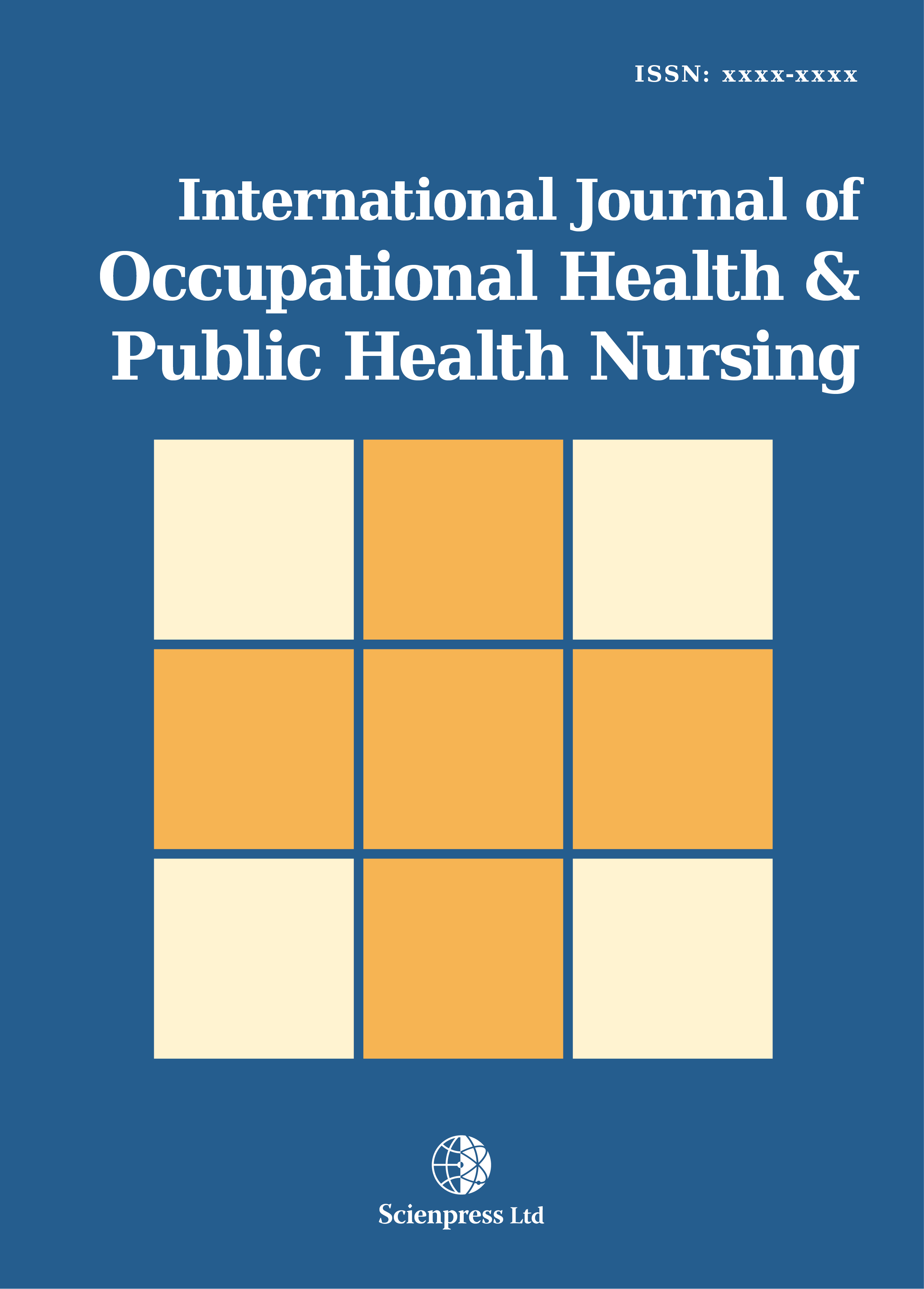International Journal Of Occupational Health and Public Health Nursing
Work Related Exposures to Biological Hazards and Compliance to Safe Work Practices among Nurses of a Tertiary Hospital in Sokoto, Nigeria
-
 [ Download ]
[ Download ]
- Times downloaded: 10007
Abstract
Occupational hazards also exist where medical care is provided and the providers are at increased risk of injuries and infections. The aim is to assess prevalence and frequency of Work related exposures to Biological Hazards and compliance to Safe Work Practices among Nurses. The study is hospital-based and descriptive cross-sectional study. A two stage sampling method was used to select the 250 respondents and data collected using pretested questionnaires and analyzed with SPSS version 20.0. Quantitative variables were summarized using mean and standard deviation and categorical variables with frequencies and percentages. Work related exposures (WRE) rate experienced for six months period was determined and expressed as person-months including an individual Nurse Injury rate for the number of events. Almost all the respondents (94%) had not received training on safe work practices. WRE prevalence was 20.4% and total number of WRE experienced by the Nurses was 388 for a six-month period, with an individual nurse WRE rate of 1.6 events every six months. Common exposures were needle sticks prick, direct contact with contaminated materials and splash of body fluids into the eyes. Very few respondents reported use of facemask all the time while only 27% reported use of hand gloves and a fraction (4.2%) have had supervisory safety visit to their unit. WRE prevalence was high and most common exposure remains needle stick injury. There should be safety orientation and training on safe work practices and regular safety supervisory visit to all units to promote compliance.
Keywords: Work related Exposures, Biological hazards, Nurses, Tertiary Hospital.
